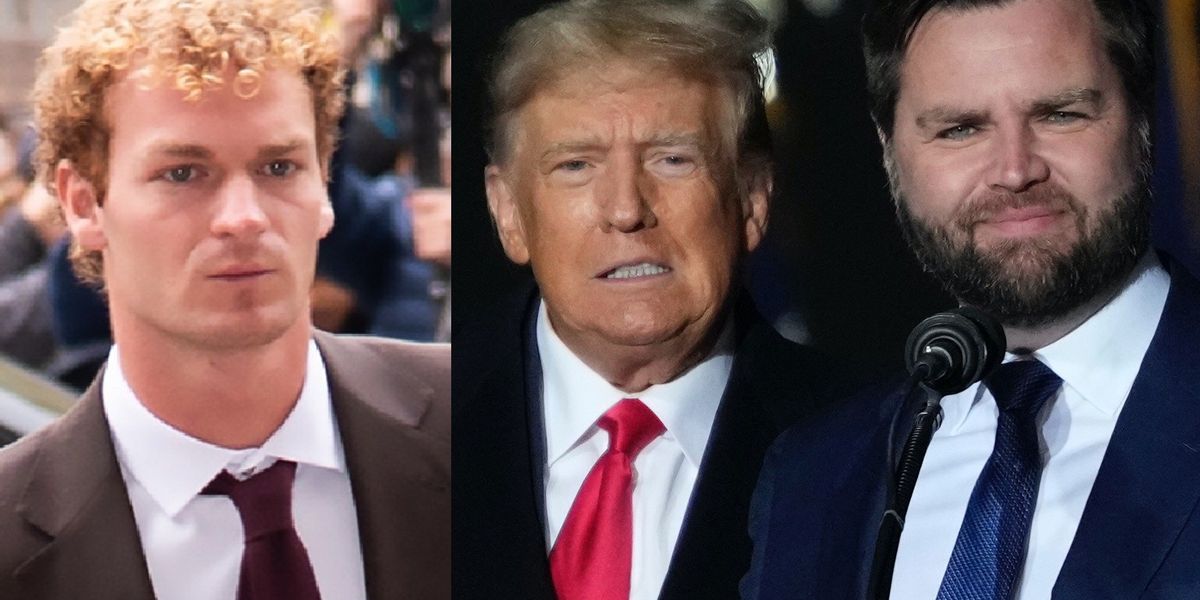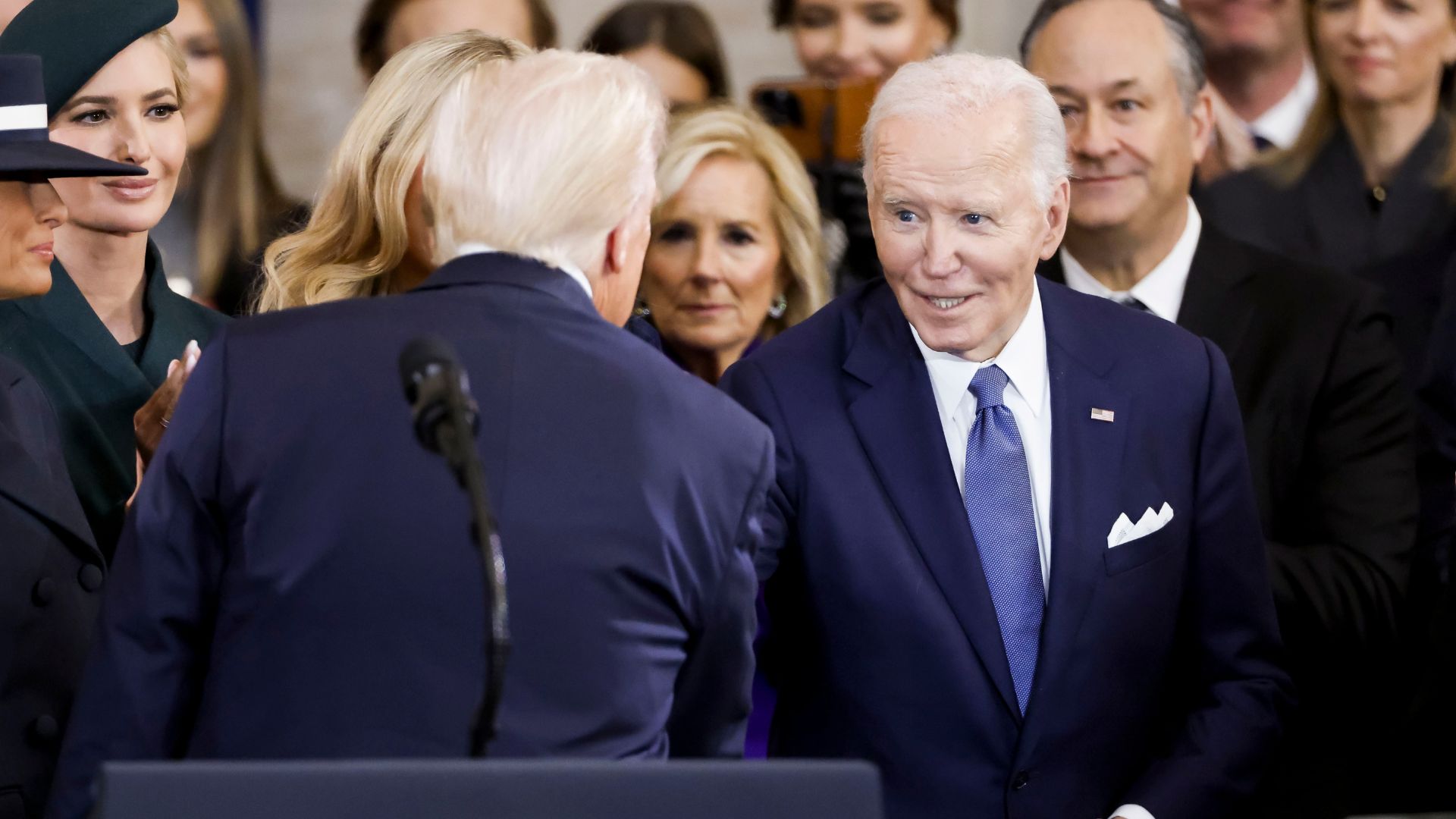Rep. Alexandria Ocasio-Cortez sparked heated controversy on Thursday with her remarks regarding the fatal shooting of UnitedHealthcare CEO Brian Thompson.
Her comments, which suggested that public reactions to the murder reflect a deeper frustration with the U.S. healthcare system, drew sharp criticism across social media and political circles.
Speaking to CBS News’ Jaala Brown, Ocasio-Cortez emphasized systemic inequality as the root issue behind the unrest and discontent, but her statements left many questioning the tone and implications of her remarks.
Celebrate Trump’s Historic 2024 Victory with the Exclusive Trump 47th President Collection!
“This is not to say that an act of violence is justified,” Ocasio-Cortez clarified, “but I think for anyone who is confused or shocked or appalled, they need to understand that people interpret and feel and experience denied claims as an act of violence against them.”
She elaborated further, noting, “Health care in this country has gotten to such a depraved state that people are living with things they should never have to live with. And this is not to say and this is not to participate in that glorification, but we need to understand that extreme levels of inequality in the United States yield high degrees of social instability.”
Her remarks came on the heels of a high-profile incident in which Thompson was shot outside a luxury Midtown Manhattan hotel in what police described as a “brazen, targeted attack.”
The 50-year-old CEO, who had been leading UnitedHealthcare since 2021, was reportedly en route to his company’s annual investor conference when the attack occurred.

Thompson’s wife, Paulette, later disclosed that her husband had received threats prior to his murder.
The suspect, Luigi Mangione, a 26-year-old Ivy League graduate from Towson, Maryland, was apprehended after a five-day manhunt ended at a McDonald’s in Altoona, Pennsylvania.
According to authorities, Mangione was found carrying a manifesto-type document criticizing the health insurance industry and accusing it of corporate greed.
Police have since described the shooting as deeply premeditated, with Mangione’s writings pointing to frustration with systemic issues in healthcare.

The murder has fueled an unsettling wave of support for Mangione online, with some viewing his actions as a form of protest against a flawed healthcare system.
Across New York City, posters and online messages have warned other CEOs in the industry that they could be next. Disturbingly, this trend has extended beyond social media, as a Florida mother was arrested for making threats to BlueCross BlueShield over a denied insurance claim.
These developments underscore the tense and volatile environment surrounding the issue of healthcare in America.
Ocasio-Cortez’s comments have further polarized the public. Critics accused her of rationalizing violence. “No AOC, you don’t get to justify violence,” one user wrote on X (formerly Twitter).
Another expressed concern about the broader implications of her remarks: “Violence is never the answer, full stop. Rationalizing such actions only deepens divisions and detracts from real solutions. The focus should be on reforming the system, not excusing tragedy. Leadership should aim to heal, not fan the flames of desperation.”

The congresswoman’s defenders argue that her comments were an attempt to shed light on the underlying issues fueling public frustration. “She’s not endorsing violence,” one supporter countered.
“She’s calling attention to the broken system that’s pushing people to the brink.”
Brian Thompson’s tenure at UnitedHealthcare was not without controversy. Under his leadership, the company faced a Department of Justice investigation into its practices.
Critics of the health insurance industry have long argued that companies prioritize profit over patient care, with denied claims often cited as a key issue. Such grievances, while valid, have now become intertwined with a tragic and violent act that has shocked the nation.

Mangione’s background—an Ivy League education and a wealthy Maryland upbringing—has added another layer of complexity to the narrative.
Rather than the stereotype of an economically disenfranchised individual driven to desperate measures, Mangione’s actions appear motivated by ideological disillusionment.
His case raises questions about the psychological and societal pressures that can lead individuals to justify extreme measures as a response to systemic failures.
The murder of Thompson, and the discourse surrounding it, highlights the growing tensions within American society.
Healthcare remains a deeply polarizing issue, with many Americans feeling trapped in a system that prioritizes profits over well-being.
Ocasio-Cortez’s comments, while controversial, have reignited conversations about the need for reform and the consequences of systemic inequality.
Still, the backlash she faces underscores the delicate balance required of public figures when addressing sensitive issues. In an era where rhetoric can easily be misinterpreted or weaponized, leaders must tread carefully to ensure their words inspire constructive dialogue rather than deepen divisions.
As the nation grapples with the fallout of this tragedy, the focus must remain on addressing the root causes of public frustration while unequivocally condemning violence in all its forms.
The healthcare system’s flaws are undeniable, but acts of violence only serve to harm efforts for meaningful change. Thompson’s death should be a call to action for reform, not a rallying cry for further unrest.
Americans deserve a system that prioritizes their health and well-being, but achieving this goal requires unity, compassion, and a commitment to nonviolence.
WATCH THE VIDEO:
The opinions expressed by contributors and/or content partners are their own and do not necessarily reflect the views of LifeZette. Contact us for guidelines on submitting your own commentary.
Read the full article here


![Alexandria Ocasio Cortez Sympathizes With Those Celebrating Unitedhealthcare CEO’s Murder [WATCH] Alexandria Ocasio Cortez Sympathizes With Those Celebrating Unitedhealthcare CEO’s Murder [WATCH]](https://www.wowbro.wtf/wp-content/uploads/2024/12/2024.12.13-04.53-wowbro-675c666e9bcb5.jpg)







